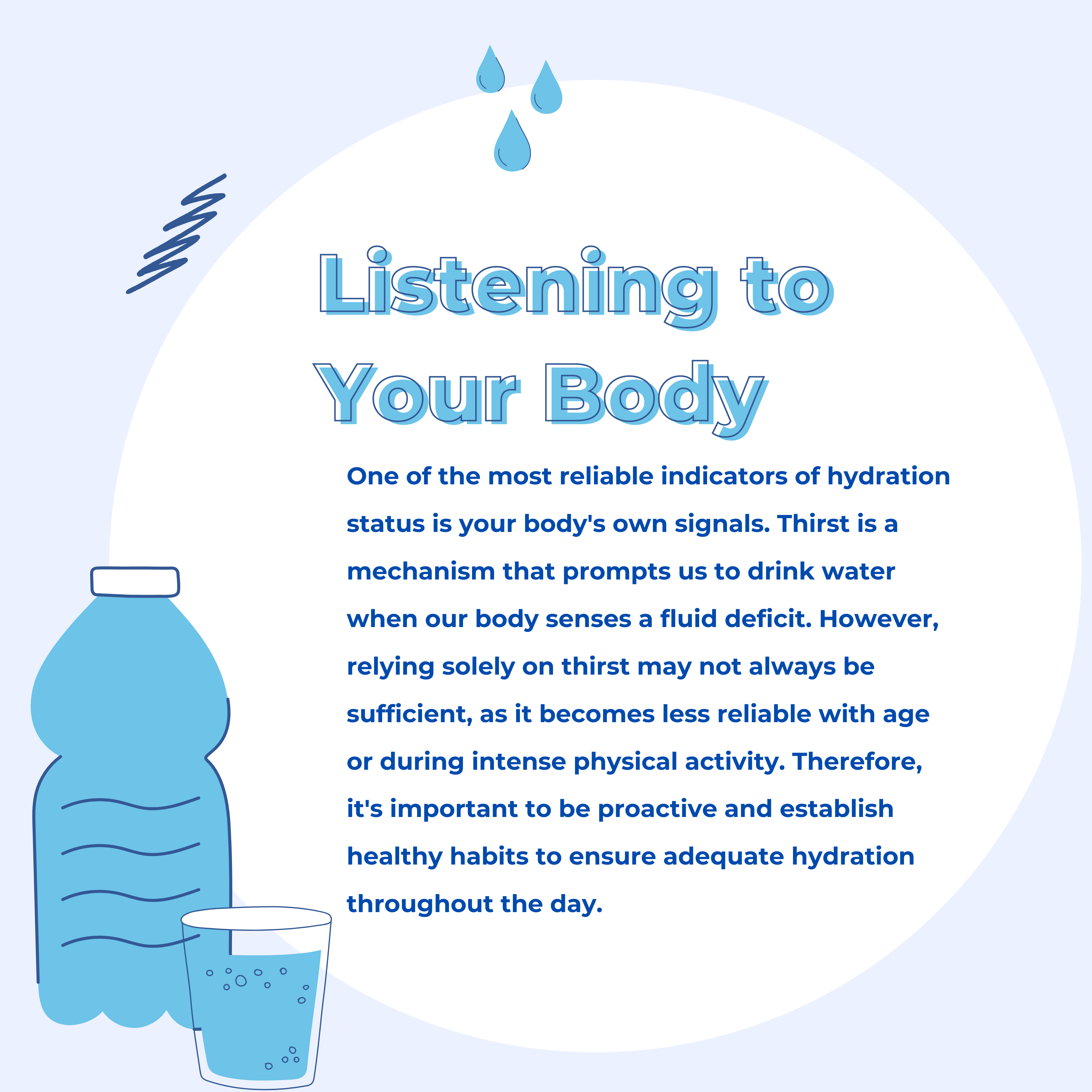Dr Ankita S
MBBS, MS, DNB OBGY
Water is the elixir of life, and ensuring adequate hydration is essential for maintaining our health and well-being. But how much water should we drink each day? In the pursuit of a healthy lifestyle, we often focus on nutrition, exercise, and sleep, but we tend to overlook one of the most essential aspects: hydration. In this blog, we will delve into the significance of hydration for overall health and explore the many benefits it offers.
The Body's Dependence on Water
Understanding Individual Water Needs
Benefits of Proper Hydration
- Optimal Physical Performance: Hydration is crucial for peak physical performance. During exercise, our bodies lose water through sweat, and even mild dehydration can lead to a decline in performance. By staying hydrated, we ensure adequate blood flow, nutrient transport, and energy production to our muscles, enhancing endurance and reducing fatigue.
- Enhanced Cognitive Function: Research suggests that even mild dehydration can impair cognitive abilities such as memory, attention, and concentration. By keeping hydrated, we support mental clarity, alertness, and overall brain health.
- Digestive Health: Water is essential for maintaining a healthy digestive system. It aids in the breakdown of food, absorption of nutrients, and the prevention of constipation. Sufficient hydration ensures smooth digestion, reduces the risk of gastrointestinal issues, and supports a healthy gut microbiome.
- Detoxification and Kidney Function:By drinking enough water, we assist the body in its natural detoxification processes and reduce the risk of kidney stones and urinary tract infections.
- Joint and Muscle Health: Water acts as a lubricant for our joints, preventing friction and ensuring smooth movement, alleviating joint pain, reducing the risk of injuries, and enhancing overall flexibility and mobility. Additionally, water plays a crucial role in preventing muscle cramps and promoting efficient muscle function.
Tips for Staying Hydrated
Now that we understand the importance of hydration, let’s explore some tips to help maintain optimal hydration levels:
- Drink Sufficient Water: The general recommendation is to consume at least 8 cups (64 ounces) of water per day. However, individual requirements may vary depending on factors such as age, activity level, climate, and overall health. Pay attention to your body’s signals and increase your water intake accordingly.
- Eat Hydrating Foods: Many fruits and vegetables have high water content and can contribute to your overall hydration. Include foods such as watermelon, cucumber, oranges, and lettuce in your diet to supplement your water intake.
- Hydrate Throughout the Day: Don’y slightly dehydrated. Sip water throughout the day to maintain a steady hydration level.
- Avoid Excessive Alcohol and Caffeine: Alcoholic and caffeinated beverages can have a diuretic effect, causing increased urine production and potential dehydration. If you consume these drinks, balance them with additional water intake.
- Monitor Urine Color: Keep an eye on the color of your urine. Clear or pale yellow urine is a good indicator of adequate hydration, while darker urine suggests a need for more fluids.
Listening to Your Body

Conclusion
References
1.Popkin, B. M., D’Anci, K. E., & Rosenberg, I. H. (2010). Water, hydration, and health. Nutrition reviews, 68(8), 439-458.
2.Marcos, A., Manonelles, P., Palacios, N., Wärnberg, J., Casajús, J. A., Pérez, M., … & Urrialde, R. (2014). Physical activity, hydration and health.
3. Ritz, P., & Berrut, G. (2005). The importance of good hydration for day-to-day health. Nutrition reviews, 63(suppl_1), S6-S13.
Frequently Asked Questions
Dr Ankita S
MBBS, MS, DNB OBGY
Varshini
M.Tech Food Biotechnologist
Varshini
M.Tech Food Biotechnologist
Related Blogs
- The vital role of hydration in achieving optimal healthSeptember 11, 2023
- The Connection Between PCOS and DepressionMay 5, 2023
- Riding a emotional roller coaster with PCOSMarch 9, 2023
- PCOS and mental health: Depression and anxietyMarch 16, 2022






